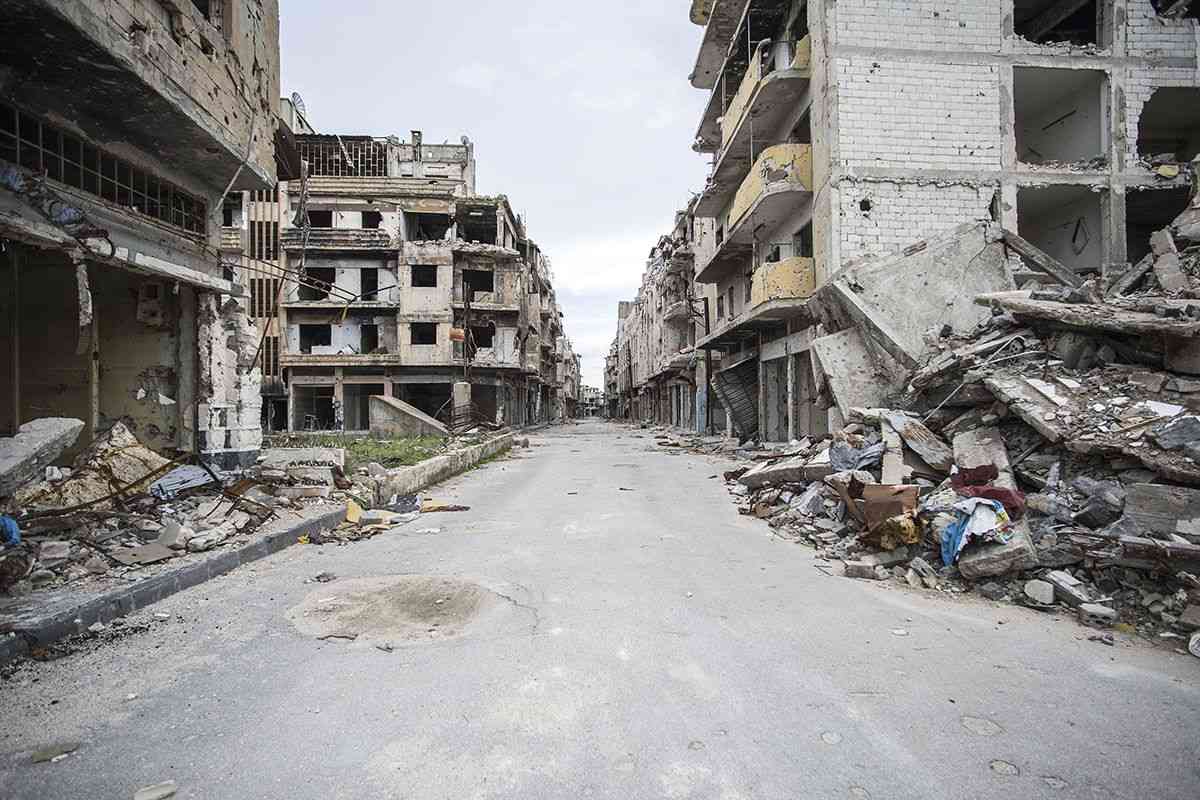
Suad Aldarra’s memoir, I Don’t Want To Talk About Home, follows the author’s long search for belonging on leaving her home country of Syria
Book of the month
Review by Katie Burton
Pain ripples through Suad Aldarra’s memoir. There’s the pain of growing up isolated as a foreigner in highly restrictive Saudi Arabia, the pain of questioning her religious beliefs, of clashing with her domineering father, of choosing a career path and of agonising about whether to have children. But no pain beats that of leaving Syria, possibly never to return.
For Aldarra, now a data scientist and author living in Ireland, Syria was home. Although she spent her early years in Saudi for her father’s work, she dreamed of the yearly visits to her homeland and moved there to study after school. In Damascus she found some freedom from her father’s tyrannical rules (although he still held much sway, even via the telephone), she made friends and fell in love. And then the war began.
Aldarra doesn’t delve into the causes of the Syrian War – as the book’s title makes plain, she doesn’t want to talk about it. As such, this isn’t a story about the war itself – it doesn’t touch on politics or international relations – but about how it feels to be a migrant, estranged from all that makes a place home. Aldarra describes the physiological trauma of this more vividly than I’ve ever read before, offering a real taste of how it feels to leave, perhaps never to return. It crops up in her longing for familiar foods, the fear of a new subway system, dismay at the weather, struggles to understand a new accent and, more than anything, in the loneliness that comes when everyone you know – even your husband and family – is scattered across the world. Amid it all, it seems extraordinary that she carves out such a successful career in the tech sector – many wouldn’t have been able to do so.
It’s this success that gives Aldarra such a strange vantage point on the war back home. She looks at reports in the media of people drowning at sea, knowing that she’s one of them but not quite the same. While working for UNICEF, she uses her technological prowess to assist the refugee effort, but the pain of doing so is almost unbearable. In one particularly memorable scene, she attends a fancy function to raise money for Syrian refugees, but while she feels grateful to the people giving their time and money, she can’t understand how they can so easily switch between modes: from tragedy to party in one evening. Because of this, she presents a picture of herself as always on the outside. Even when she makes friends with her colleagues she isn’t quite in the gang. The fact that she doesn’t drink alcohol only exacerbates this – something that forever marks her as different.
Aldarra also paints a particularly strong portrait of the practical problems migrants face. She documents her constant struggle to get visas and to tackle each nation’s heightened bureaucracy, whether it be to work in a new place or to visit family and friends. Reunions have to be heavily orchestrated, with both parties often needing to travel to a friendly third country. She and her husband spend long periods apart because his Palestinian heritage makes life even harder. It’s a powerful reminder of the privilege those of us with a solid passport have. To be able to flit about the world at ease, to go where we want, is something utterly alien to a Syrian refugee yet to be granted a new homeland.
This memoir is also about other things. Taking us from youth to motherhood, it’s a coming-of-age story and some of the most fascinating parts see Aldarra questioning her religious beliefs and practices, and gradually forging her own path. Drawn to an ultra-strict interpretation of the good Muslim girl as a child, she soon finds that stance just as isolating as the flashy, wealth-centred approach of her Saudi classmates. But it’s a long road to any sense of peace, a gradual loosening in which she nervously gives up her hijab and some of the more restrictive tenets of the faith.
The end of I Don’t Want to Talk About Home doesn’t really feel like an end. There’s no glorious homecoming for Aldarra, nor for thousands of others now living and working overseas. The worst years of the war and the Islamic State occupations may be over, but Syria is still dangerous and its economy is in a disastrous state (see page 34). The home in which Aldarra was meant to live with her husband has been decimated; there is no easy return. And although she and her family have now created a new home and a largely happy new life, there’s a real sense that this will be an ongoing, perhaps a lifelong process. There’s still a great deal of trauma to process; the search for belonging continues.
I devoured I Don’t Want to Talk About Home in a few evenings, oddly hooked on Aldarra’s searingly honest account of her life. She sets out her pain and problems simply, yet vividly. Relationship, family and identity issues are all explored. I found it fascinating to peer into a life so different to my own and yet still understand, or at least get a glimpse, of the feelings that such experiences engender. They’re feelings we have all experienced at some time or other – doubt, isolation, loneliness – but exacerbated ten-fold by the experience of war and exile. This is an excellent and ultimately hopeful memoir, essential for anyone seeking an insight into the world of an unwilling migrant.




